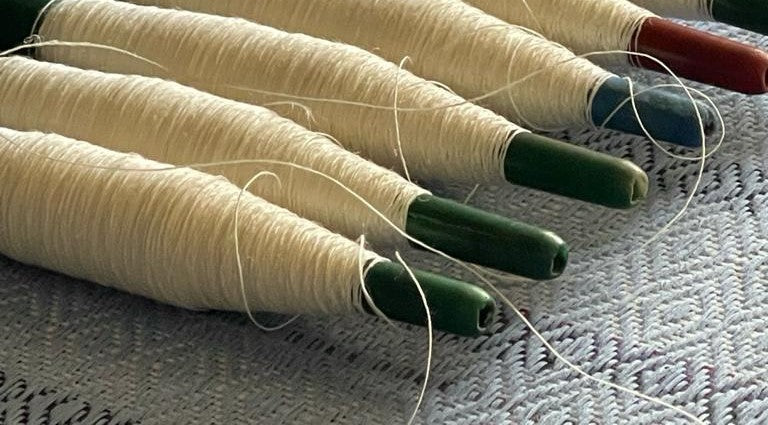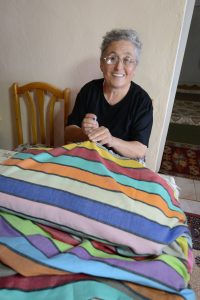Turkish towels, also known as peshtemals or hammam towels, have captured the hearts of many for their unique blend of history, craftsmanship, and versatility. But have you ever wondered where Turkish towels are made? In this exploration, we'll delve into the origins and the intricate process of creating these beloved textiles, and we'll also address a concerning issue of counterfeit towels. From traditional handweaving techniques to the significance of imperfections, we'll uncover the artistry behind Turkish towel production and explore the regions in Turkey where these towels are woven.
The Ancient Art of Turkish Towel Making
To understand where Turkish towels are made, we must first recognize their rich history. These towels find their roots in the ancient Ottoman Empire, where they were initially crafted by hand in Turkish bathhouses, also known as hammams. The tradition of making Turkish towels dates back centuries, and it is this deep-seated history that adds to their allure.
In modern-day Turkey, the tradition of Turkish towel making continues. Various regions in Turkey have a long-standing tradition of weaving these towels. One such region is Denizli, known for its quality textile production. Denizli's skilled artisans have been weaving Turkish towels for generations, carrying forward the art of handweaving that dates back centuries.

Handweaving: A Time-Honored Craft
One of the most fascinating aspects of Turkish towel production is the method by which they are made. Unlike many modern textiles produced by machines, Turkish towels are handwoven, following the same age-old techniques that have been passed down through generations. The process begins with twine, which is meticulously twisted and spun into yarn, creating the fundamental building block for these towels. This manual labor emphasizes the dedication and craftsmanship of the artisans behind each piece.
The loom, a fundamental tool in the creation of Turkish towels, is where the magic happens. These looming techniques are not just a craft; they're an art form. The loom becomes a canvas, and the weaver, the artist. It's a dance of tradition, patience, and artistry. Each strand of yarn is carefully interlaced to create the intricate patterns and designs that Turkish towels are known for. The result is a textile that embodies the essence of tradition and craftsmanship.
A Unique and Imperfect Beauty
One of the key characteristics of Turkish towels that sets them apart is their individuality. No two towels are the same, and this is not a flaw, but rather a testament to their handmade nature. Imperfections, if you can even call them that, are celebrated in Turkish towel craftsmanship. These variations, whether in color, weave, or pattern, highlight the human touch in the creation process. They are a reminder that each Turkish towel is a unique work of art, reflecting the care and attention of the artisan.
The imperfections found in Turkish towels are not a result of mistakes or errors in the weaving process; they are a deliberate choice by the artisans. These intentional irregularities are a nod to the tradition of handweaving and serve as a visual reminder of the towels' authenticity. In a world where mass-produced, uniform items are the norm, the unique imperfections of Turkish towels make them stand out. They are a celebration of the human touch in craftsmanship.
The Quaint Looming Process
Looming is the heart of Turkish towel creation. The yarn, meticulously handspun, is skillfully woven into beautiful patterns that are a hallmark of these towels. What's remarkable is that this intricate process is executed entirely by hand, without the aid of electric machines. The loom becomes a canvas, and the artisan, the artist, as they bring forth the character and charm of each towel. It's a dance of tradition, patience, and artistry.
The looming process is where the individuality of each Turkish towel truly shines. The weavers are not just following a pattern; they are infusing their expertise, creativity, and cultural heritage into each piece. The result is a towel that tells a story, reflecting the artisan's skill and the rich history of Turkish textile craftsmanship.

The Turkish Towel's Global Appeal
Today, Turkish towels have transcended their historical roots and garnered admirers worldwide. They're not just towels but versatile companions for various occasions. Whether at the beach, spa, or as a stylish accessory, Turkish towels have an enduring allure that blends fashion, function, and tradition.
In recent years, Turkish towels have become a global sensation. Their unique combination of functionality and style has captured the attention of people around the world. From beachgoers to interior designers, Turkish towels are now in high demand. This international appeal has not only preserved the tradition of Turkish towel making but has also provided economic opportunities for the artisans who continue to handcraft these exquisite textiles.
The Issue of Counterfeit "Turkish" Towels
It's essential for consumers to be aware of this issue and make informed choices when purchasing Turkish towels. Genuine Turkish towels are handwoven in Turkey, with a rich history and tradition behind them. When you choose a real Turkish towel, you not only get a high-quality product but also support the skilled artisans who continue the time-honored tradition of handweaving.
Choose Authentic Turkish Towels from QuiQuattro
If you want to experience the true beauty and quality of Turkish towels while also making a meaningful contribution, consider purchasing from QuiQuattro. They offer a wonderful selection of authentic Turkish towels that are handwoven in Turkey. With every purchase from QuiQuattro, you're not only acquiring a piece of genuine craftsmanship but also contributing to young girls' education. It's a chance to embrace tradition, enjoy the luxury of Turkish towels, and make a positive impact.
So, where are Turkish towels made? They are woven in the heart of tradition, reflecting a rich history that has withstood the test of time. Handwoven with care, imperfections embraced, and individuality celebrated, Turkish towels are a testament to the craftsmanship that goes into their creation. Whether in Turkish bathhouses of centuries past or the modern world, the allure of Turkish towels remains, capturing the essence of a bygone era and offering a touch of authentic luxury. Choose genuine Turkish towels and support the artisans who keep this tradition alive while making a difference in young girls' education with each purchase from QuiQuattro.



